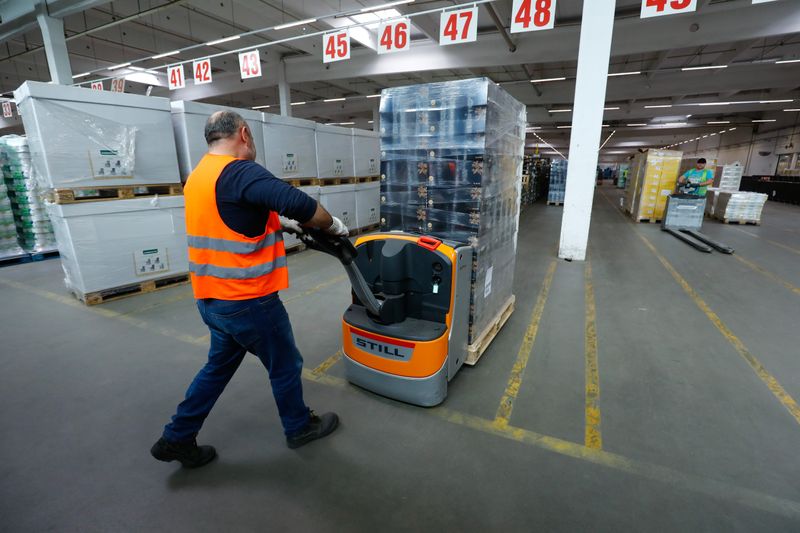BERLIN (Reuters) - Orders for German-made goods rose sharply in June in the latest sign that Europe's largest economy is starting to shrug off the effects of months of lockdown, but volumes were still far below pre-pandemic levels, according to Statistics Office data.
Orders rose an adjusted 27.9% compared to the previous month, more than double May's 10.4% expansion, and far ahead of economists' forecast of 10.1%. Orders were still 11.3% below the level of February, the last pre-crisis month, though.
The recovery, led by domestic demand, is still fragile, as was underlined by a poll Der Spiegel magazine published on Thursday that showed four-fifths of Germans expect further lockdowns to control the coronavirus pandemic, with half of them expecting future measures to be more severe.
But even with those caveats, some economists were jubilant.
"The number came in so far ahead of expectations that we can almost call it a breakthrough," said the LBBW bank's Jens-Oliver Niklasch. "Of course there are concerns about a second lockdown, but this number is really encouraging for the second half."
Germany's response to the pandemic has been effective by European standards, managing to keep infection and death rates relatively low despite imposing restrictions that were both milder and shorter than in many other countries.
Domestic orders grew 35.3%, outpacing orders from abroad which expanded by 22%. The recovery in automotive orders was particularly strong, with orders rising 66.5%, though this still left them 12.2% short of February's level.
The economic impact has been softened by Germany's short-time work programme, under which employees temporarily work shorter hours, with the state making up their income shortfall.

An Ifo institute survey earlier found that numbers on short-time work were falling. The recovery was uneven, however, with toolmakers putting more people on short hours, even as working days lengthened in services, retail and automotive.